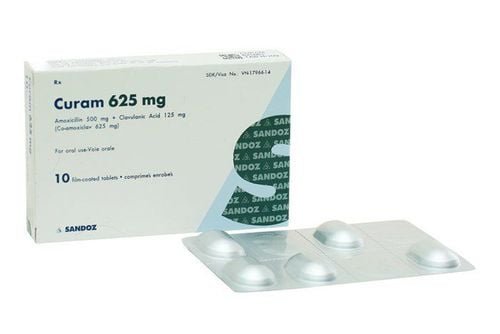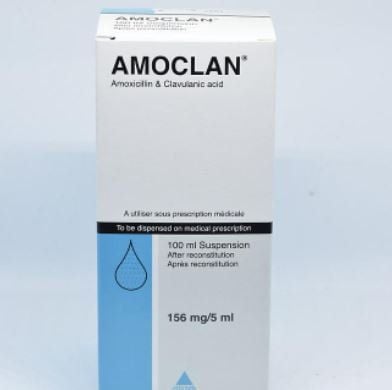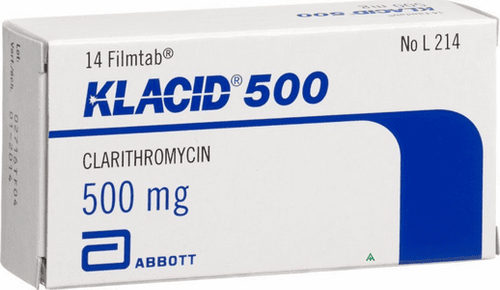Otrivin nasal drops help reduce symptoms related to increased mucus secretion and facilitate the clearance of blocked secretions, making breathing easier in cases of nasal congestion. So, can Otrivin 0.05% nasal drops be used for infants?
1. What are Otrivin Nasal Drops for Infants?
Otrivin 0.05% contains the active ingredient Xylometazoline, a sympathomimetic agent that acts on alpha-adrenergic receptors in the nasal mucosa. The medication is formulated as a solution with a concentration of 0.05% Xylometazoline.
This medication is used to temporarily relieve nasal congestion due to various conditions, including the common cold, sinusitis, hay fever, and allergies. It works by constricting blood vessels in the nasal area, reducing swelling and congestion.
2. Can Otrivin 0.05% Nasal Drops Be Used for Infants?
Otrivin 0.05% nasal drops are not recommended for use in infants under 1 year of age. For children aged 1 to 2 years, the medication should be used as prescribed by a doctor. For children aged 2 to 11 years, the nasal drops should be used under adult supervision.
3. How to use Otrivin nasal drops
To ensure the effectiveness of Otrivin nasal drops for infants, follow these guidelines:
- Use the nasal drops as directed on the product packaging or as instructed by a doctor.
- First, wash your hands and clean the nose by gently blowing it before using the medication.
- Tilt the patient's head back comfortably as far as possible or lie down with the head tilted to one side.
- Do not swallow the medication if it drips into the throat.
- When administering the drops, do not let the dropper touch the nose.
- Keep the head tilted back to allow the drops to spread throughout the nose.
- If a drop slips out, administer another drop.
- Repeat for the other nostril.
- After use, clean and dry the dropper before placing it back in the bottle.
- Each bottle should be used by only one person to prevent the spread of bacteria.
- Otrivin 0.05% nasal drops for infants only provide temporary symptom relief. Do not use more medication or for longer than directed, as this may increase the risk of side effects.
- Do not use the medication for more than 3 days, as it may cause a condition called rebound congestion. Symptoms of rebound congestion include prolonged nasal redness and swelling, and increased nasal discharge. If this occurs, stop using the medication and consult a doctor.

4. Side effects of Otrivin nasal drops
While using Otrivin nasal drops, users may experience some mild side effects, such as:
- Immune system disorders (very rare): hypersensitivity reactions (angioedema, rash, itching)
- Nervous system disorders: headache (common)
- Eye disorders: transient visual impairment (very rare)
- Cardiovascular disorders: abnormal heart rhythm and increased heart rate (very rare)
- Respiratory, thoracic, and mediastinal disorders: dry nose or nasal discomfort (common)
- Gastrointestinal disorders: nausea (common)
- General disorders and administration site conditions: burning sensation at the application site (common)
5. Contraindications of Otrivin Nasal Drops
Do not use Otrivin 0.05% nasal drops if:
- The patient is hypersensitive to Xylometazoline or any other ingredient in the medication.
- The patient has undergone transsphenoidal hypophysectomy or other transnasal/transoral surgeries.
- The patient has a history of narrow-angle glaucoma.
- The patient has dry or atrophic rhinitis.

6. Drug Interactions with Otrivin Nasal Drops
Using Otrivin with MAO inhibitors can cause serious (even fatal) drug interactions. Therefore, avoid using MAO inhibitors (isocarboxazid, linezolid, methylene blue, moclobemide, phenelzine, procarbazine, rasagiline, safinamide, selegiline, tranylcypromine) while being treated with Otrivin. Before using Otrivin, discuss with your doctor all prescription and non-prescription medications, and herbal products you are using, especially medications for high blood pressure and tricyclic antidepressants (e.g., amitriptyline).
Currently, Otrivin 0.05% nasal drops for infants are widely available on the market, so you can purchase them when needed. However, before using, read the instructions carefully, and if necessary, consult a doctor or pharmacist to ensure safe and effective treatment.
To arrange an appointment, please call HOTLINE or make your reservation directly HERE. You may also download the MyVinmec app to schedule appointments faster and manage your reservations more conveniently.
Reference source: webmd.com













